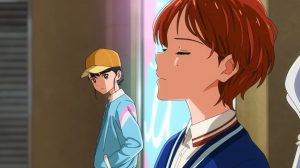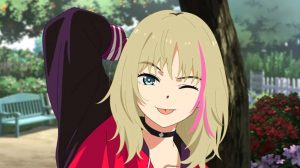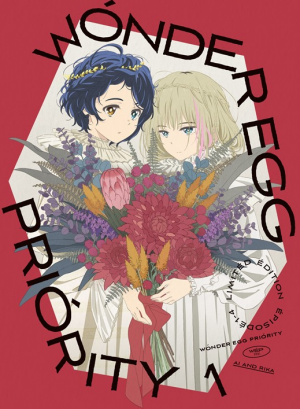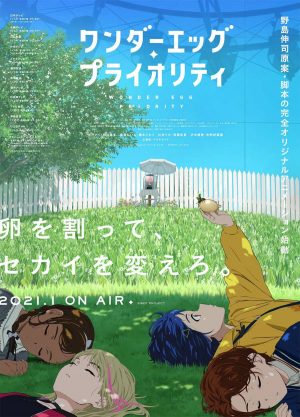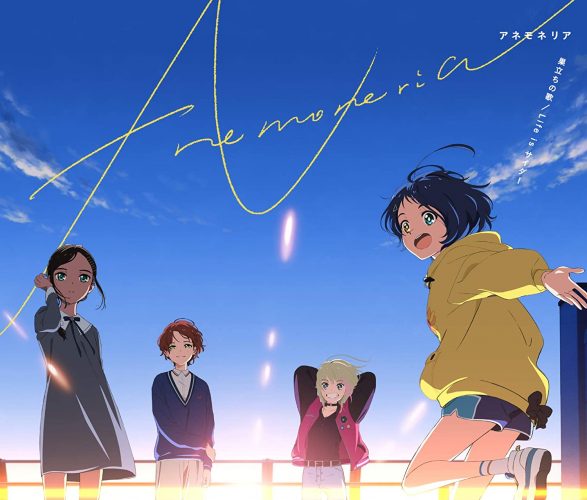
Ai Ooto follows a talking beetle to an idyllic garden, and she is asked to break a magic egg. The egg contains a girl, and Ai is called to save the girl against an angry mob, the Seenoevils. Ai believes that by fighting she can bring her friend Koito back to life. Along the way she meets Neiru, a child prodigy, Rika, a former junior idol, and Momoe, an androgynous heartthrob, who all fight for their own reasons, driven by a sense of guilt over the loss of people important to them.
Wonder Egg Priority was the mysterious original release of the season. First listed as a slice of life, we all understood after watching the chilling, jaw clenching first episode that it definitely isn’t. The writer and the team took it upon them to tell a complex story that covered several social issues, and used references from different genres to do so. Also, Wonder Egg Priority had high-quality production, it just looks great and sounds great. We don’t often get this attention to detail in seasonal anime anymore.
The result was uneven yet memorable. This review is technically incomplete as we still have to watch the special episode, to be released on June 29, which will hopefully tie the loose ends. Let’s look into what made this anime one of the hits of the Winter 2021 anime season, the good and the bad.
Spoilers Ahead
Adolescence
Wonder Egg Priority tries to be many things but for sure it tells a story about adolescence. It is a story about not wanting or not being able to grow up. Each character wants to save a person who committed suicide. Along the way, they fight to save Egg girls, who have similar trauma to their own, and only by accepting themselves and their weaknesses they might be able to find a resolution.
Bullying, and most often, sexual and physical abuse at the hands of adults, these traumatic experiences take the form of Wonder Killers, who literally kill the will to wonder and will to live in teenage girls. Due to the heavy symbolism in Wonder Egg Priority, by even getting Freudian psychological terms like Eros and Thanatos thrown into the mix, we were expecting a less concrete resolution, possibly a metaphorical one, about self-acceptance, love, and connection. We kind of got it, in Ai’s episode (Unvanquished Warrior) but also didn’t. Let’s take a look.
Frill
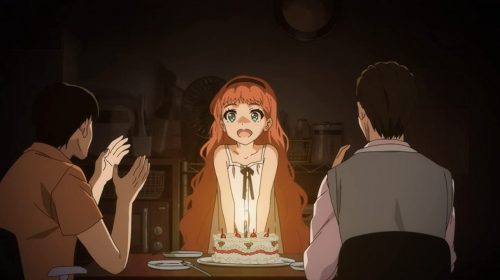
In episode 11, we get Frill, an AI girl stuck in eternal adolescence, giving a concrete sci-fi twist to the series. Not able to progress and grow out of this teenage state - and really, treated like a pet by the Accas who once they got a social life again, they forgot about her - Frill grows jealous and resentful. Her lack of progression is like death, stuck between states, and she is meant to be the archenemy of the show, against the Warriors of Eros, our main cast.
Unfortunately, the introduction of Frill came up late. Knowing her story helps with understanding this central tension, but getting to meet her so late, we can’t help to feel tricked, or that her character is just a narrative ploy. Also, for a show centered around girls’ trauma, it’s at least a bit problematic that the archenemy is another girl, driven by emotion and jealousy when abusive adults were behind most of the Egg girls’ suicides. And, where is the Accas’ responsibility for creating the “perfect girl”, projecting on her all their warped ideas, as adult men, about femininity and girlhood?
If all this sounds complicated, it’s because, let’s admit it, it kind of is?
Traumatized Girls
Wonder Egg Priority has been compared to Puella Magica Madoka, but while Madoka concerned itself with the supernatural plain, Wonder Egg positions its heroines in today’s Japan. The scenes from normal life, with the girls just hanging out, are excellent, so much that we want an actual slice-of-life season with these cute beans having fun together. Ai’s and Rika’s characters were the most developed.
And while Wonder Egg Priority seems to understand young women’s trauma well, then, it falters, by including commentary that misses the mark. It tries to explain why it is only girls that can be Warriors of Eros, where it could, as well, just leave it at that. Making overarching statements about femininity, in the voice of the Accas, and not committing to its initial vision left us with a sour taste.
And, what’s up with Momoe? Coded as trans or trans adjacent, she stole girls’ and boys’ hearts alike, and so many of the audience’s with her effortless good looks and heroic deeds. The way her story was delivered was uneven, with contradictory information about her backstory and inner conflicts between episodes, leaving questions unanswered. Audiences took it upon them to put the clues together and debate over Momoe’s gender, but we don’t need more of that in our anime in 2021, especially from series like Wonder Egg Priority that tries to tell a more nuanced story.
Final Thoughts

What Wonder Egg Priority achieved was to boost interest in seasonals and original stories, and the creative work at play behind the development of a story. That’s quite an achievement for animation, which becomes more and more of an ephemeral art, in a season packed with releases, and creatives working hard only to do it all over again. Wonder Egg Priority was an ambitious series with highs and lows that garnered well-deserved attention for its rich symbolism, attention to visual detail, and consistently high production quality.
This review wouldn’t be complete without bringing up the delays in the schedule. We want to voice our full support to creators who make our favorite form of entertainment possible. We hope to get some resolution in the special episode released on June 29 and wish that the creatives behind this ambitious project can catch their breath, if only for a little, in the meantime.
But, what did you think of Wonder Egg Priority? Was it a hit or miss for you? Don’t forget to comment down below and thanks for reading.
Recommended Post
Wonder Egg Priority Isn't As Progressive As It Thinks It Is
Recommended Post
Why Wonder Egg Priority's Rika Is Strong in Her Weakness
Recommended Post
6 Anime Like Wonder Egg Priority [Recommendations]
Recommended Post


